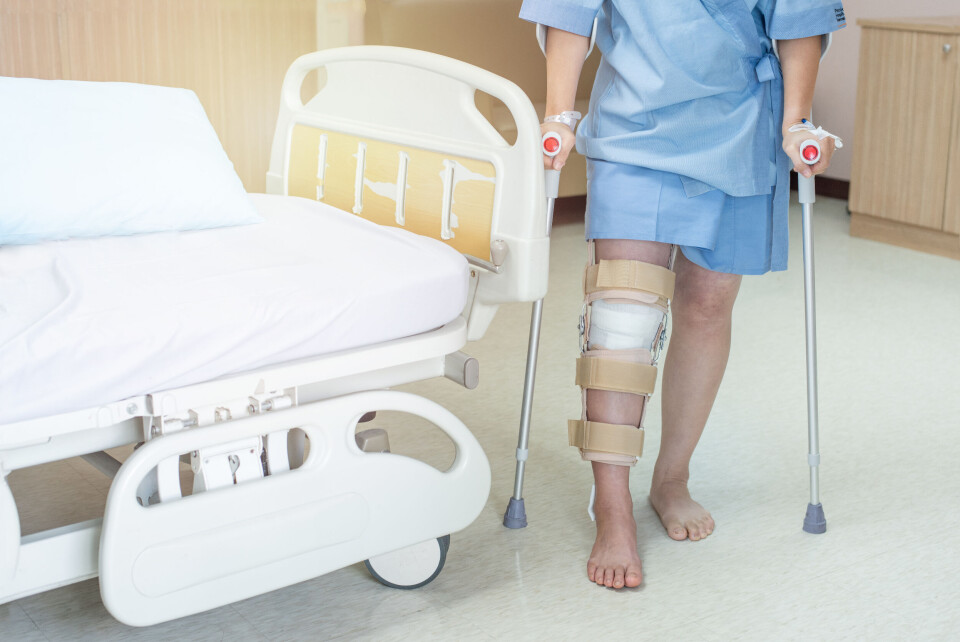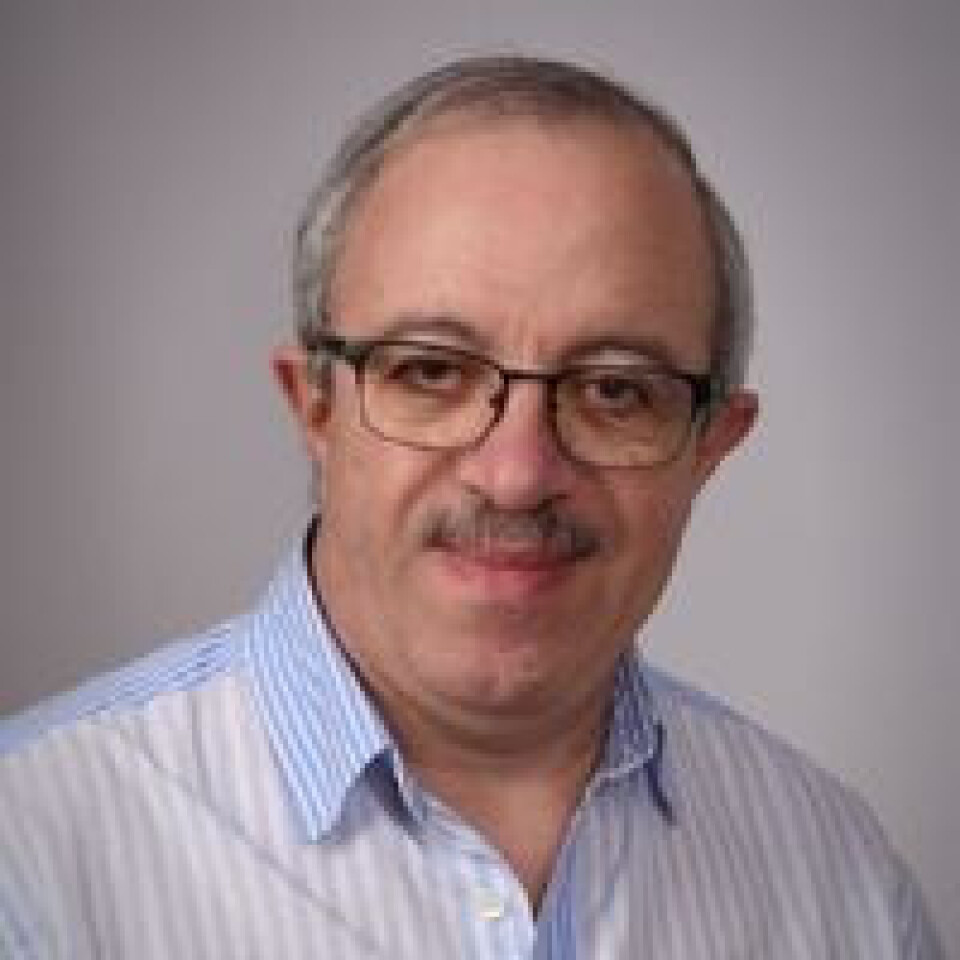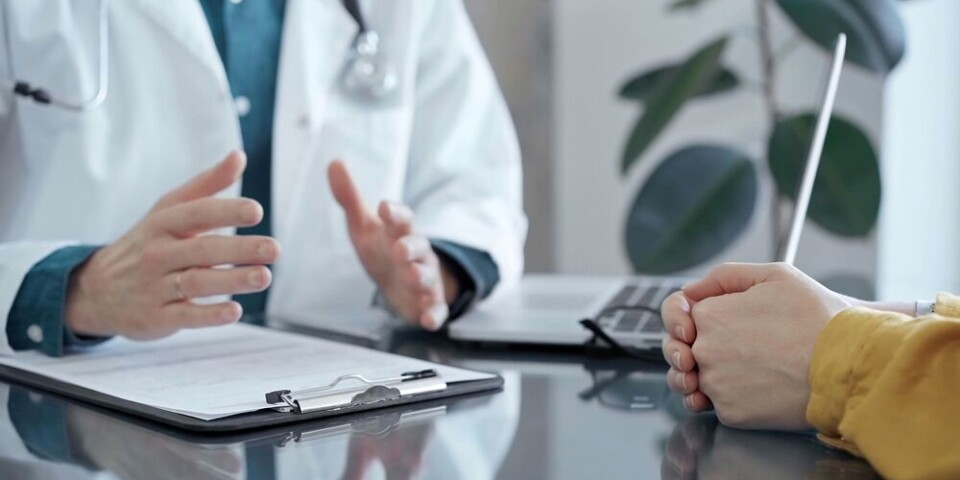-
France’s €3 book delivery fee challenged in EU court by Amazon
Online retailer said measure is protectionist and ‘in breach of EU laws’
-
Allergies: How to know pollen levels in your commune of France
Interactive online maps can track and predict how pollen is changing in the air
-
Law to revamp public transport behaviour and penalties adopted in France
The bill is controversial for some, with critics saying it will invade people’s privacy and liberty
‘Make patients in France part of the team to save money and lives’
We speak to a surgeon about how he is trying to overhaul the patient experience in French hospitals

Easing pre-surgery fasting rules and improving communication from medical staff are just two ways that hospitals are looking to overhaul the patient experience so they recover faster.
With many establishments under pressure this winter, so-called Programmes de Récupération Améliorée Après Chirurgie (RAC, or sometimes RAAC) are being championed as one way patients can be discharged from hospital sooner.
Danish approach aims to reduce surgical stress
In English, this holistic approach, which aims to involve patients in their treatment, is known as 'Enhanced Recovery After Surgery', or ERAS.
Originally devised by a Danish team led by Henrik Kehlet in the 1990s, the programme is implemented before, during and after surgery.
Key points are informing the patient, anticipating the organisation of care at home after discharge from hospital, reducing the consequences of surgical stress, controlling pain and encouraging patients to be more autonomous.
Common rules could be relaxed
France’s health authority, the Haute Autorité de Santé, has advocated the approach since 2016 and it can be applied to a wide range of surgeries, including digestive, cardio-vascular, orthopaedic, spinal and gynaecological operations.
“Originally, the aim was to find ways to reduce the strain of surgery,” says Dr Karem Slim, a surgeon and president of the Grace Association (Groupe Francophone de Réhabilitation Améliorée après Chirurgie), which is based in France and active across the francophone world.

Photo: Dr Karem Slim advocates a holistic, team approach; Credit: Dr Karem Slim
“For example, fasting before surgery means patients arrive in the operating theatre stressed and dehydrated.
“In fact, it is best to drink a tisane with some sugar in it one to two hours before surgery, but the habit of requiring patients to fast is so ingrained that medical staff and patients are nervous of change.”
Read more: French healthcare workers reject Macron’s plans to reform the system
He says there are other common habits that could also be relaxed, such as inserting medical drains in the thorax and insisting on post-operative patients fasting until they pass water/stools.
He explains that at the hospital where he works in Clermont-Ferrand, CHU Estaing, he holds regular meetings to persuade colleagues of the benefits and would like to see this put in place nationally.
‘Every time we question established dogma, there is resistance’
“So the challenge is for teams, including the surgeon, the physiotherapist, the nurses, the anaesthetist and the pharmacist, to work to change accepted practices.
“We really need to get people in different departments and specialties working together with a strong team spirit, which is currently often not the case.
“Anaesthetists and surgeons, for example, often don't have much to say to each other. They both tend to just do their own thing.”
He says getting patients involved can include showing them videos of what to expect and, for example, teaching hip replacement patients how to use crutches before, rather than after, their surgery.
“The patient should be part of the team and should understand what is happening and why.”
Read more: How to find a doctor in France who speaks good English
Buffet breakfast to get patients on their feet
Getting patients back on their feet quickly is another strand of the RAAC programme.
The simple act of staying in bed predisposes people to forming blood clots, especially after colon, hip and knee surgery.
"In some countries, such as Holland, they serve breakfast as a buffet so patients have to get out of bed and leave their room every morning, improving their autonomy.
“Also in Holland, instead of having televisions in each room, they have them in a common sitting room, which encourages people to get up and socialise."
Patients know they are not abandoned at home
Dr Slim says that in the past digestive surgery patients often stayed in hospital for nearly a fortnight.
These days, it is more likely to be two to three days and some patients go home on the same day.
“Most people go home on the third day after surgery and we phone them three days, five days, and seven days after.
“They have visits from a nurse if necessary, they have a 24-hour phone number in case of any doubt, and have an appointment a month later."
He explains that, importantly, due to good communication, patients know they are leaving hospital early because their state of health permits it – and not because they are being abandoned by their team.
The aftercare at home is all part of the RAAC system.
Satisfaction surveys and questionnaires show that patients are very happy, he says.
"They generally feel better, they have fewer drains and tubes, and can control their own pain with a push-button device, which they prefer.
“Many ask why the RAAC programme was not in place before."
‘Surgeons are used to being top boss’
RAAC is being gradually implemented all over France.
"Some surgeons do resist. They are used to being top boss in the hierarchy and are not always ready to treat other staff as experts in their fields.
“Also, you need a nurse to do the audit to organise the programme, and administrators say they cannot afford any more staff. In fact, RAAC is already saving around €1million every year."
Read more: What are the costs of hospital stays in France?
A greater benefit is that reducing the use of drains, breathing tubes and catheters cuts the incidence of post-surgery complications and infections, meaning post-operative mortality is halved using RAAC.
Dr Slim says that, traditionally, medical teams in France do not talk to patients but clear explanations lower stress and improve cooperation.
“Staff are nervous of hearing complaints but it is a matter of using positive language. Instead of asking if someone is cold, for example, you ask if they are warm enough."
‘Patients are experts on their own bodies’
With RAAC, he says, the relationships are different. Rather than a triangular power structure, there is a team of equals, all experts in their own fields, and patients are part of this too.
“Patients are experts on their own bodies,” he says.
“It avoids that situation where someone in a more junior role has valuable information that they don't disclose because they believe it's not their place to say anything.”
Dr Slim concedes that establishing RAAC as a normal part of healthcare in hospitals might take a long time and is especially complicated in France because of the hierarchical structure.
“It is easier in Switzerland and Belgium, but we will make it work in the end.
“I travel extensively, talking to people about this, and everyone is always interested because they see that it saves money."
Related articles
French hospitals find fun way to ease children's operation stress
Explainer: French healthcare terms that are useful to know
Hospital ratings: website lets patients compare French health centres
























